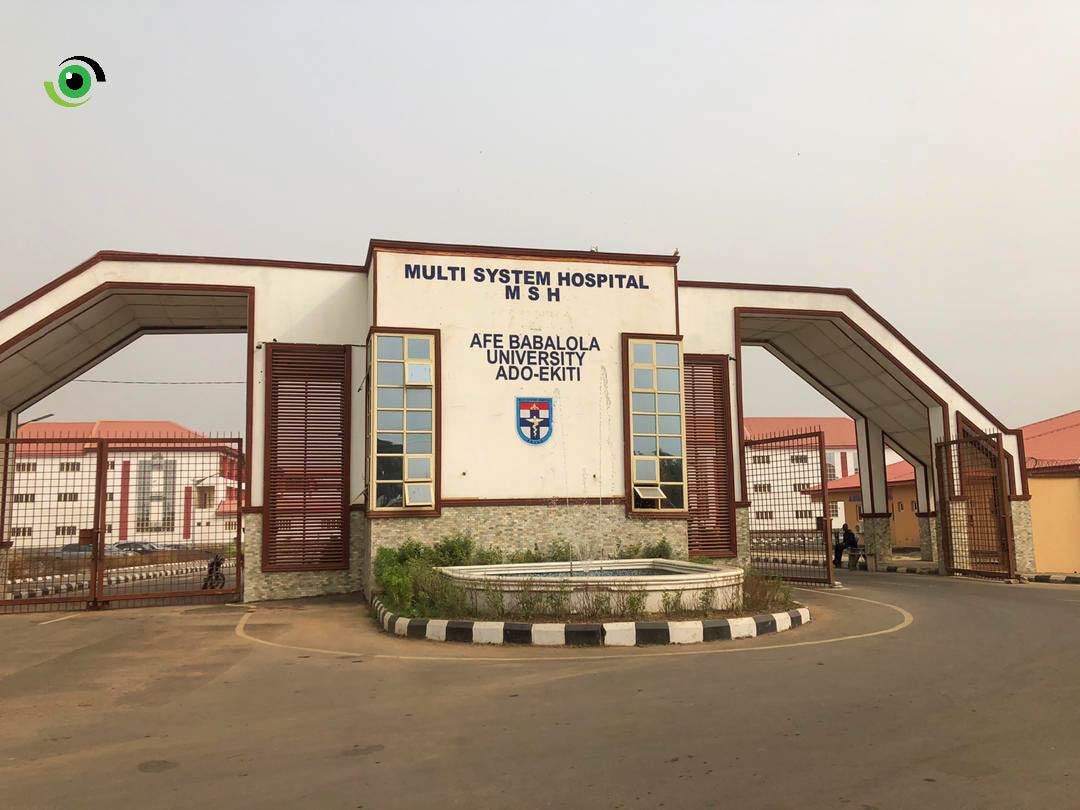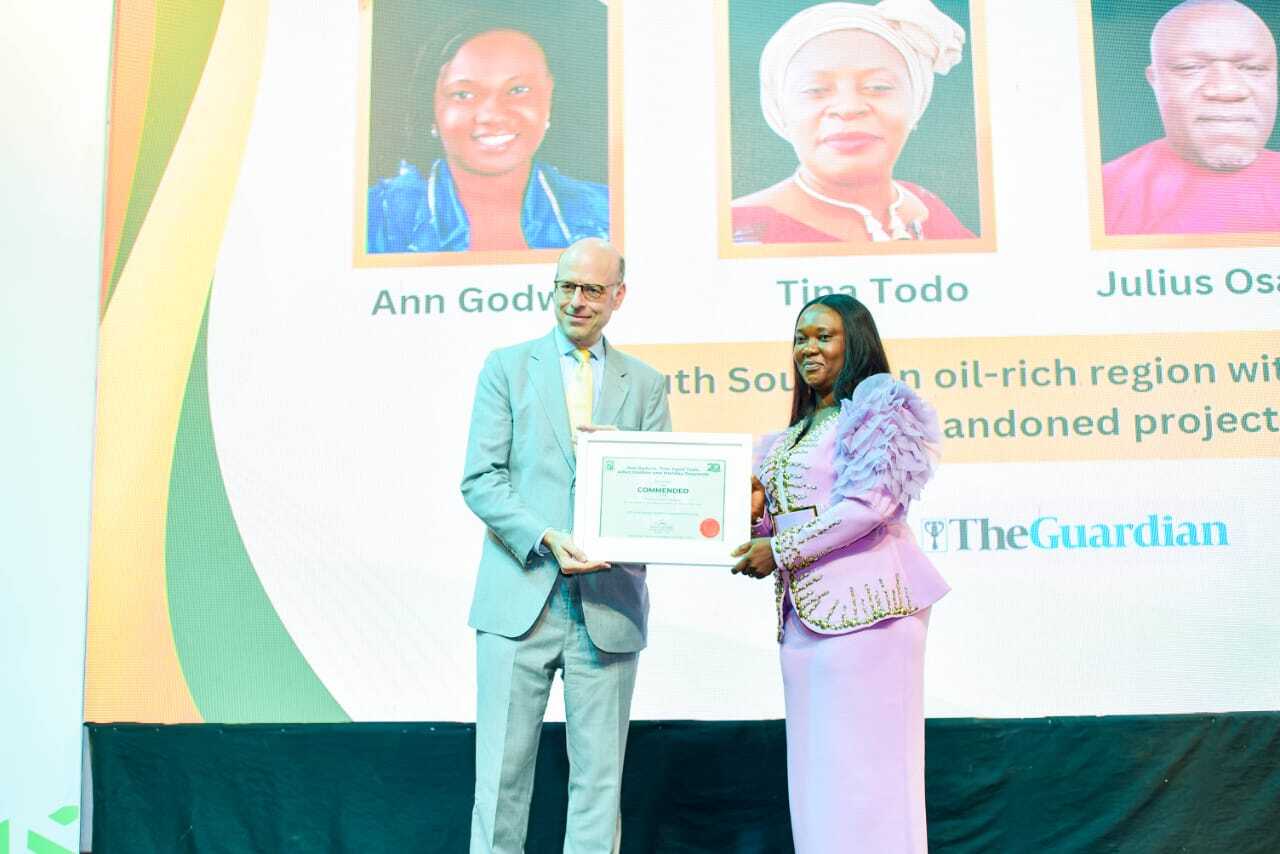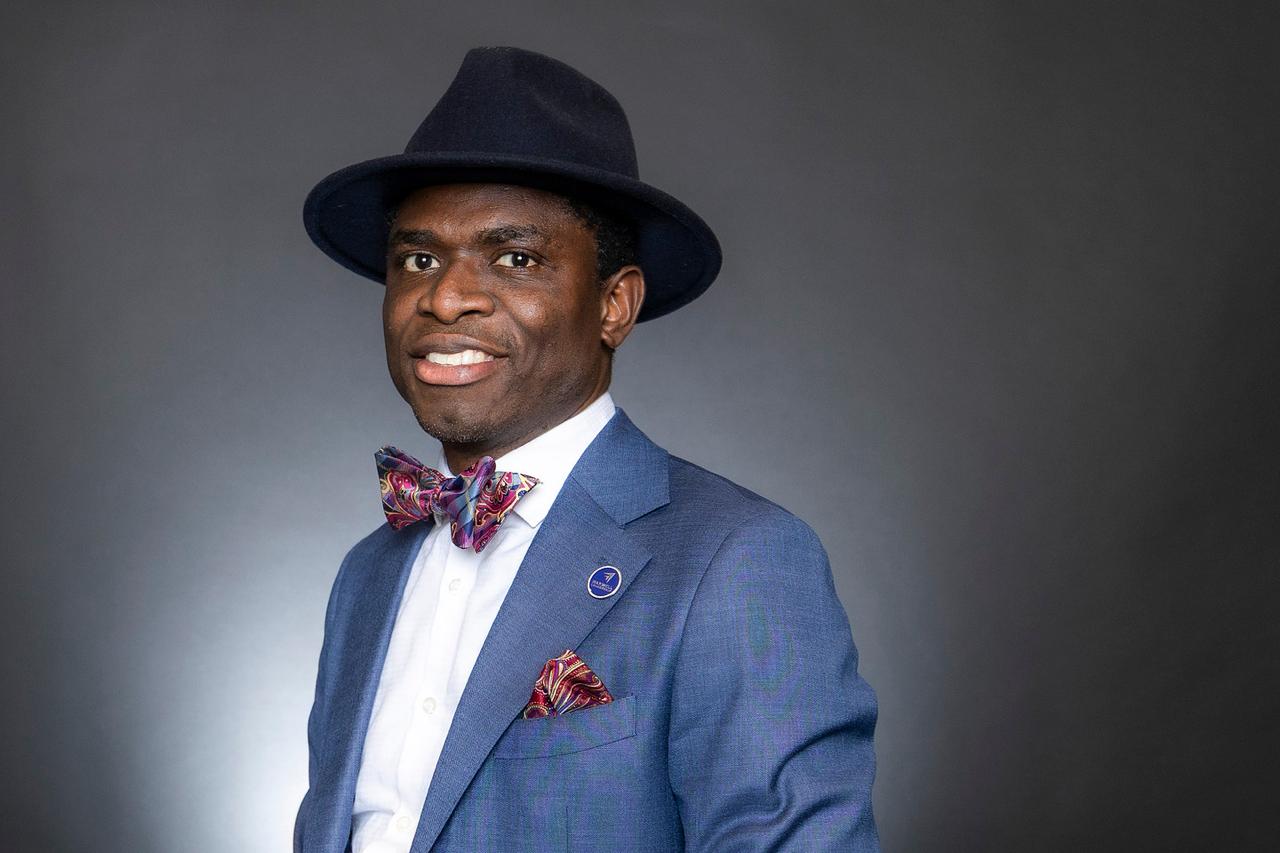
“In the book, Apology of Socrates, the Greek Philosopher Plato attempts a dialogue with, and about his mentor Socrates. The conversations and exchanges I have had with my mentor Adedeji were as illuminating, as those between Plato and Socrates, and I can write chapters about the intellectual journey of our itinerant Professor Adedeji. I am perplexed as to how the life of one man could have been so consequential and impactful on the trajectory of the African people.” – Namibia’s President Hage Gottfried Geingob.
During my interview with President Hage Gottfried Geingob, he mentioned that his mentor was a Nigerian by the name Professor Adebayo Adedeji and they met more than forty years ago. I had to ask the President to mention the name again because I thought I heard him wrong (a childhood friend of mine is also Adebayo Adedeji; CEO of Wakanow). When the name was repeated, I couldn’t put an image to the name. The President was surprised that a Yoruba man from Ijebu-Ode in Ogun State had not heard about Professor Adebayo Adedeji; who also hailed from Ijebu-Ode in Ogun State. There was a crash course on who President Geingob’s mentor was. And I wrote down his name to do some research on him.
Succinctly and simply put, Professor Adebayo Adedeji was a superstar in the African circles, an extraordinaire economist and technocrat of Nigeria from the 60s. A few questions to elderly Nigerians and it was obvious he was revered/respected.
Professor Adebayo Adedeji founded and formulated the National Youth Service Corps (NYSC). That is just a snippet of his legacy. But I think I might have attended a colloquium in his honour (2018 or 2019) when I was still in Lagos, Nigeria (but I can’t remember even though his profile picture on the UNECA website looks familiar.)
According to his Wikipedia page; Professor Adebayo Adedeji (21 December 1930 – 25 April 2018) was a Nigerian economist and academic. A full-fledged Professor at the age of 36 years, he was Nigeria’s Federal Commissioner for Economic Development and Reconstruction from 1971 to 1975. He was responsible for the economic development and reconstruction of post-civil war Nigeria. In June 1975, he was appointed Executive Secretary of the United Nations Economic Commission for Africa and remained in this position until July 1991. Professor Adedeji wrote the Lagos Plan of Action of 1980 that was adopted by the UN and OAU (now AU). On his return to Nigeria, he founded the African Centre for Development and Strategic Studies (ACDESS), a non-governmental independent continental non-profit, think-tank dedicated to multi-disciplinary and strategic studies on and for Africa. He received the national honor of Commander of the Federal Republic of Nigeria.
To understand who the Nigerian mentor to President Geingob was, I discovered Professor Adebayo Adedeji had written enough books and co-authored a plethora of books, research papers etc to last a lifetime and to transform any African country that decided to delve into his books. I was flabberwhelmed and overgasted (yes, you read my juxtaposed coinage) when I discovered some of his books: Nigerian Federal Finance: its development, problems, and prospects, 1969; African Development and Governance Strategies in the 21st Century: Looking Back to Move Forward: Essays in honour of Adebayo Adedeji; Nigeria: Renewal From the Roots?: The Struggle for Democratic Development; Recruiting, Retention, and Future Levels of Military Personnel; Interaction Between Structuralism, Structural Adjustment and Food Security Policies in Development Policy Management; The Challenge of African Economic Recovery and Development; Africa in the Nineteen-nineties: A Decade for Socio-economic Recovery and Transformation Or Another Lost Decade?; Nigeria’s Development Process: Back to the Future?; Democracy, Growth and Development: Lessons of Experience; Towards a dynamic African economy; Replacing Military Personnel in Support Positions with Civilian Employees; The All-volunteer Military: Issues and Performance
His UNECA (United Nations Economic Commission for Africa) Profile reads thus:
Professor Adebayo Adedeji is from Nigeria. He was the Under- Secretary-General and Executive Secretary of the United Nations Economic Commission for Africa (ECA) from 1975 to 1991. As an African leader and an unrepentant believer in African integration and development who has had a singularly distinguished academic, political and diplomatic career in service to Africa.
Mr. Adebayo Adedeji joined the Government of the Federal Republic of Nigeria in the early 1970’s as the Cabinet Minister responsible for the economic development and reconstruction of post-civil war. During this decade, his proactive role in the establishment of the ECOWAS was strongly welcomed by his peers, who still refer to him as “le Père de la CEDEAO” (the Father of ECOWAS).
In June 1975, Professor Adedeji joined the ECA and was promoted to the rank of United Nations Under-Secretary- General in 1978. He held this position until July 1991 when he resigned his appointment to return to this native country, Nigeria, after 16 years of international service.
Under his leadership, the ECA tackled the challenges of a new international economic order to Africa and adopted landmark policies such as the Lagos Plan of Action. Prof Adedeji worked to correct the adverse impacts of SAPs on African economies, offering an alternative – AAF-SAP. He led the establishment of the RECs, beginning with ECOWAS in 1975; drew up the African Charter for Popular Participation, and pushed for the proclamation of UNCTADA I by the UN General Assembly.
Immediately after his resignation from the United Nations, Professor Adedeji established the African Centre for Development and Strategic Studies (ACDESS). Born out of the need to fill the void in strategic thinking in Africa, ACDESS «raison d’être» is to provide and promote options for overcoming the multi-layered marginalization of the vast majority of African peoples – be it within local communities, within nation-states or within the global economic and political system. Professor Adedeji created in ACDESS, a viable and sustainable centre for future studies, and he continued to dedicate himself to the struggle for an Africa which is an integral part and a fully respected partner of the world community.
In the mid 2000’s, before retiring, his last major contributions for Africa were reflected through his role as founding member of the 2005 Africa Forum of Former Heads of State and Heads of International Organizations and through his role as Chairperson of the African Peer Review Mechanism’s Panel of Eminent Persons (APRM).
Adebayo was born in 1930 and raised in Nigeria. He graduated from both London (B.Sc and Ph.D in Economics) and Harvard Universities (M.P.A.).
The President of Namibia’s tribute titled; “Tribute To Professor Adebayo Adedeji: Iconic Itinerary Of A Nation-Builder And Exemplary Pan-Africanist” must have been published in the media and I found it via the President’s Facebook page (posted on Friday, 29th of June 2018.) And it reads thus:
In 2018, our continent, Africa is poorer. The continent is not poorer in a material sense. The people of our continent have made remarkable socio-economic progress over the past two decades. Sorrowfully, on 25 April 2018, a seminal voice went still, a scholar-practitioner and a champion for the emancipation of the African continent passed away.
A deep void engulfed the people of Ogun State and Nigeria, and a profound sense of loss reverberated across our continent, including Namibia on the Southwestern tip of Africa.
We are poorer without Professor Adebayo Adedeji, an eternal optimist, an intellectual colossus, and a gift from the people of the Federal Republic of Nigeria to the African continent. A frontline member of Ijebu-Ode, Nigeria, Professor Adedeji’s path of life started where it ended, in his beloved Nigeria. Many high profile International Civil Servants after retiring stay in America, UK, France, and other parts in the West – but not Adedeji.
A Nigerian patriot and accomplished author, a Chief Adviser of the Awujale (Paramount Ruler of the Ijebus), it is not a coincidence the destiny of this exceptional son of the Ijebu-Ode Community was consummately Pan-African. Nigeria is ingrained in our memory as a leading and activist African country in the decolonization of the African continent.
In that vein, as Africans we don’t only owe Nigeria and its resolute people our profound sense of gratitude for the role the country played in advocating the cause of Independence at a difficult time, but we are also grateful for the gift and immeasurable contributions of Professor Adedeji to the Pan-Africanist project.
Professor Adedeji’s intensity at work, and intellectual finesse, in whatever role assigned to him, first Nigerian Professor of Public Administration at the University of Ife (now Obafemi Awolowo University), as Nigerian Government Minister, Under-Secretary General at the UNECA, Chairman of the Senate of then newly established United Nations Institute for Namibia in Lusaka, Zambia, prepared him to pose the landmarks for an economically integrated Africa. He invested vigor in an Africa where the African people would interact in a prosperous and borderless continent. Like all great men and women, he left an indelible mark on institutions and those he interacted with, in Africa and beyond. Administrator, scholar-practitioner and practitioner-scholar, depending on what is expected, Professor Adedeji navigated these plural worlds with panache.
Imbued with clarity of thought, and creative policy entrepreneurship, this eminent servant-leader conceptualized and implemented the infrastructure of regional integration in Africa. The Economic Community of West African States (1972), the Lagos Plan of Action (1980), the precursor to the Common Market for Eastern and Southern Africa, the Preferential Trade Area (1981), the African Alternative Framework to Structural Adjustment Programme (1989) all bear the imprint of our beloved intellectual giant and passionate Professor Adedeji. All these initiatives from an avant-garde leader, ahead of the times, were aimed at building bridges for an emancipated Africa.
Without Professor Adedeji among us, Africa is unquestionably poorer. As the people of a continent charting a new course, that of economic emancipation through a bold program of action in Agenda 2063, we could have continued to benefit from his wisdom and intellectual leadership. But his deep footprints and legacy, invaluable contributions and exemplary leadership, including emphasis on African agency in the realization of the Pan-African project provide us with solace and comfort. The Yoruba people have a saying: “Anyone who sees beauty and does not look at it, will soon be poor”. As Africans, we have seen the beauty in the work of our dear friend and mentor, Professor Adedeji.
We have, as Africans benefitted immensely from the beauty in his work, his encyclopedic brain and pledge to graciously serve others as a son of Africa and citizen of the world. Professor Adedeji’s distinguished career in service of the African people contributed to a confident Africa. It is because he was a very confident African and proud to be African. A confident Africa he believed, could only be achieved when the path of integration is irreversible, socio-economic progress and effective governance is touching the lives of many.
To me, always in admiration of his pedigree as an author of books, scholar-practitioner par excellence, and impact spanning generations, the eminent Professor remains an elder brother, a gracious teacher and a mentor. Our paths crossed four decades ago, intense conversations followed when I was serving as the Director of the United Nations Institute for Namibia in Lusaka from 1975 to 1989, when he was Chairman of the Senate of the Institute.
Professor Adedeji was firm, but fair and always available to provide the necessary intellectual and administrative guidance to the work of the Institute, whose ambitious mission was to train cadres for a future civil service in an Independent Namibia. The commitment, passion and professionalism Professor Adedeji demonstrated in all endeavors advancing the cause of Namibia’s independence infused the SWAPO Leadership and colleagues at the Institute with a sense of urgency, and optimism that we will achieve our goal of independence.
His close association with SWAPO Freedom fighters put him in harms way with the Apartheid South African regime. From that vantage point, he went beyond the call of duty. Professor Adedeji, a thoroughbred African patriot believed that our independence was inevitable, and his responsibility to play a role in the preparation of a professional corps for a future Namibian civil service was a charge he embraced with untold passion and imagination. With Independence in 1990, we knew that we could always call on the advise of our friend and Professor, keeping an open door for him, with frequent invitations to Namibia in his position as our Economic Advisor, to assist us in the task of governing and building a free nation.
We cannot match the solidarity and generosity Professor Adedeji extended to us over four decades of rigorous interactions, with a country over a thousand miles away from his native Nigeria. In our modest ways, we have honored Professor Adedeji with a Diplomatic Passport as an honorary citizen of our country.
In the book, Apology of Socrates, the Greek Philosopher Plato attempts a dialogue with, and about his mentor Socrates. The conversations and exchanges I have had with my mentor Adedeji were as illuminating, as those between Plato and Socrates, and I can write chapters about the intellectual journey of our itinerant Professor Adedeji. I am perplexed as to how the life of one man could have been so consequential and impactful on the trajectory of the African people.
With family, the Nigerian people and the entire African continent, we mourn the passing of a titan, whose trail, dedication and intimate journey with the Pan-African project will remain unmatched for generations to come. As Namibians, we thank the Nigerian people for having availed one of their own to the ideal of liberating and building a better Namibia in a united and prosperous Africa. Our journey as Namibians would be incomplete without this Nigerian patriot.
May the soul and mortal remains of our exemplary Pan-Africanist, indomitable teacher, our beloved Professor Adedeji and Asiwaju of Ijebuland rest in eternal peace.
Now, when such cerebral human being is your mentor and you were tutored under him for years at UNECA (as President Geingob was) you as the mentee would literally be a replica of such mentor. There was this Nigerian influence one could sense but it all made sense once the President talked about his mentor (post the interview).
How strong was the bond between mentor and mentee? The President of Namibia flew to Idebu-Ode in Ogun State in Nigeria in 2018 to take part in all the burial ceremony for Professor Adebayo Adedeji.
Dolapo Aina writes from Kigali, Rwanda.
[ad unit=2]






